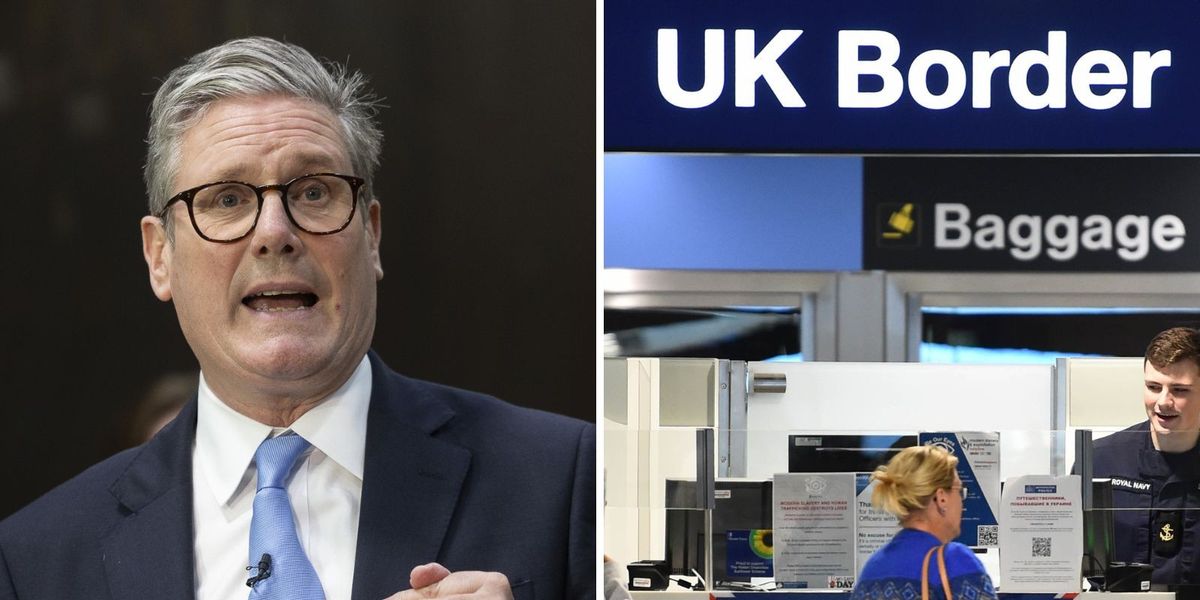The Government has warned of a more than one in four chance that Russia will attack another British ally within the next two years.
Ministers said in an official risk forecast that the UK would have to trigger a military response to counter any new act of aggression from the Kremlin, following its invasion of Ukraine in 2022.
This week the head of the Army warned that civilians would need to be called up in the event that a war breaks out with Moscow.
Gen Sir Patrick Sanders said Britain would need to “train and equip” thousands of citizens to support regular troops on the battlefield.
Cabinet Office experts have drawn up a National Risk Register which analyses the biggest threats facing the UK over the next two years.
It ranks the likelihood of a Russian attack on a non-Nato ally, with which Britain has a mutual security pact, at more than 25 per cent.
Officials said that in such a scenario “to contain and deter further aggression, military, diplomatic and economic capabilities will be needed”.
They added that the resulting war would spark “disruption of supply chains” and higher fuel prices, damaging the economy for “several years”.
Britain has signed a pact agreeing to come to the defence of Sweden, which has applied to join Nato, if the country comes under attack from Russia.
Boris Johnson, the prime minister who signed the deal, said it could involve deploying boots on the ground depending on the “request of the other party”.
The risk register also warned there is a danger that Vladimir Putin could invade a Nato ally, triggering the alliance’s mutual defence clause.
It said such aggression would require the UK to trigger “a full range of military, diplomatic, economic and information capabilities” in response.
That would mean sending in the Army alongside other European allies to hold off Russian troops until support from the US military could arrive.
In the worst-case scenario the risk assessment warned Nato could respond but “hostile state forces are not ejected and the crisis continues”.
Throughout the dossier, the threat was described as from an “adversary state with a large, advanced military” which officials said was a reference to Russia.
‘Nobody is thinking’ about a draft
Downing Street was forced to deny suggestions that it is preparing the population for the prospect of conscription following Gen Sir Patrick’s remarks.
Rishi Sunak’s spokesman insisted that there were “no plans” for a draft and that “hypothetical scenarios, talking about a conflict, are not helpful”.
James Heappey, the Armed Forces Minister, added the UK had long-standing plans to “mobilise volunteers” but said “nobody is thinking” about a draft.
But it can be revealed that Ben Wallace, the former defence secretary, was warned Britain may be forced to rely on conscription in a future war.
An official review of army recruitment commissioned by the Government said that poor pay and conditions were fuelling a personnel crisis.
The findings were presented to the MoD last summer by Rick Haythornthwaite, a veteran businessman who is now the chairman of NatWest.
He said there were serious questions over whether the “people-system at the heart of our military capability will work when tested” by a war.
“Will it still have the strength, agility, skill, adaptability and resolve we have seen from the Ukrainian armed forces, or will that core prove hollow?” he said.
“Will the service ethos that has stood for centuries continue to hold or is the future one of reliance on conscripted or mercenary forces? If action is not taken, we are not optimistic.”
Government urged to reverse Army cuts
Ministers said they had implemented all 67 recommendations he made, which will “transform the way we reward and incentivise our people”.
It came as Tory MPs urged the Government to reverse cuts to the size of the Army and spend more equipping the military for a potential conflict.
The number of fully trained soldiers in the Army is set to fall to 72,500 by 2025.
Richard Drax, a member of the defence committee, warned the Navy had been hollowed out “to the point that we are endangering the security of our country”.
“For 13 years, various prime ministers have reassured us that our Armed Forces are in good order and ready to fight,” he told the Commons.
“I have no doubt at all that our brave men and women are ready for just that, but do we have the resilience, numbers, reserves, ships, planes and armoured vehicles to fight a sustained conflict?
“Let us adhere to the warnings of a growing number of eminent people and prevent the situation in which we found ourselves in 1939.”
Labour compiled figures which show the Armed Forces have shrunk by 40,000 personnel since 2010, with recruitment targets being repeatedly missed.
One in five ships have been removed from the Navy during that time while 200 planes have been taken out of services in the last five years, the party said.
John Healey MP, the shadow defence secretary, added: “Over 14 years the Conservatives have hollowed out our Armed Forces.
“Labour will conduct a strategic defence review in our first year to assess fully the state of our Armed Forces, the threats against us and the capabilities needed to defend the UK.”











